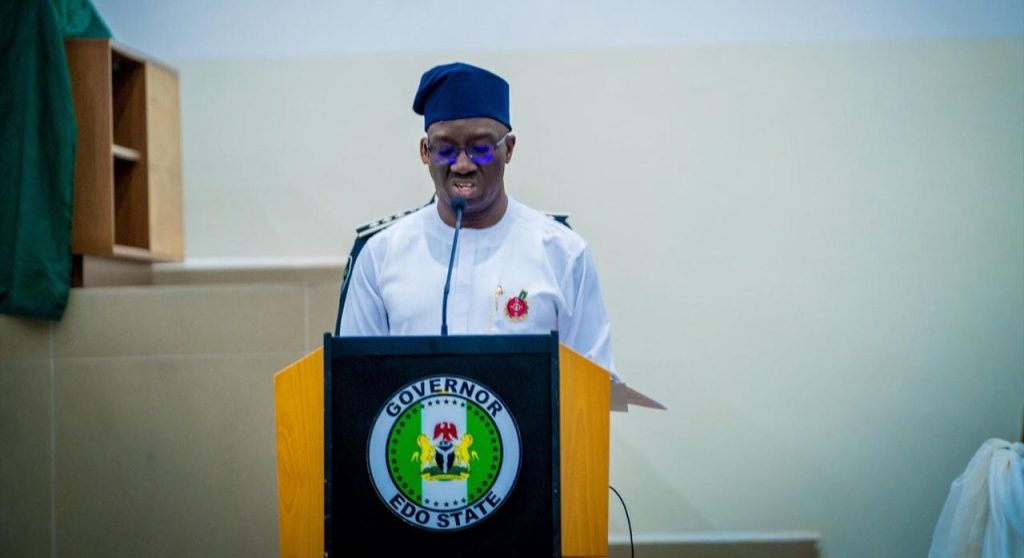Governor Monday Okpebholo of Edo State officially swore in 20 newly confirmed commissioners on October 14, 2025, marking a significant expansion of his cabinet and igniting speculation about a potential reshuffle within the State Executive Council.
The ceremony followed months of nominations and screenings by the Edo State House of Assembly.
Since his inauguration on November 12, 2024, Governor Okpebholo had governed with an initial team of nine commissioners.
However, between August and early October 2025, he nominated an additional 21 candidates, with 20 receiving confirmation.
One nominee, Hon. Chris Okaeben, remains unconfirmed due to an unresolved petition reportedly under review by the Department of State Security (DSS).
With the new appointments in place, sources close to the administration suggest that some existing cabinet members may be reassigned. Among those reportedly affected are Hon. Samson Osagie, the current Attorney-General and Commissioner for Justice, and Hon. Paul Ohonbamu, who oversees the state’s communication strategy.
Insiders hint that Prof. Roland Otaru (SAN) may replace Osagie, whose tenure has been shadowed by past allegations of financial misconduct—though he was later cleared and reinstated.
Meanwhile, Prince Kassim Afegbua is rumored to be tapped to take over Ohonbamu’s role, following his widely praised defense of the governor’s controversial remarks on a cable TV program regarding Labour Party’s 2023 presidential candidate, Mr. Peter Obi.
Afegbua’s articulate response reportedly impressed the governor, prompting consideration for a formal role in the cabinet. Though initially reluctant, sources say Afegbua’s appointment is seen as a strategic move to bolster the administration’s media and public relations efforts.
The shake-up comes amid mounting criticism from the opposition People’s Democratic Party (PDP), which has accused the governor’s media team of failing to adequately defend government policies and respond to public concerns.
PDP chieftain Hon. Shedrach Udugbai took to social media to lambast the media handlers, describing them as ineffective and overwhelmed by opposition narratives.
Udugbai argued that despite limited resources, the PDP had managed to dominate public discourse, while the state’s well-funded media team remained passive. He called for an urgent overhaul of the governor’s communication strategy, citing the need for competent professionals who can engage the public and counter criticism effectively.
As the new commissioners settle into their roles, all eyes remain on Governor Okpebholo’s next moves—particularly whether he will initiate a broader cabinet reshuffle and revamp his media team to restore public confidence and strengthen governance.

